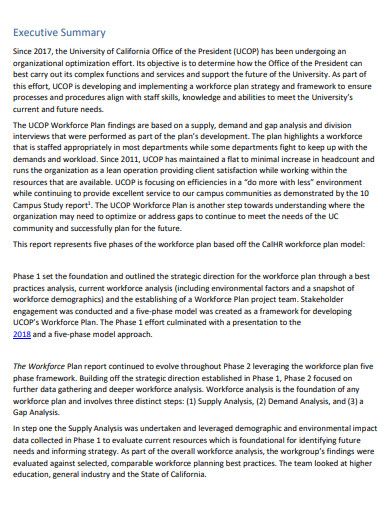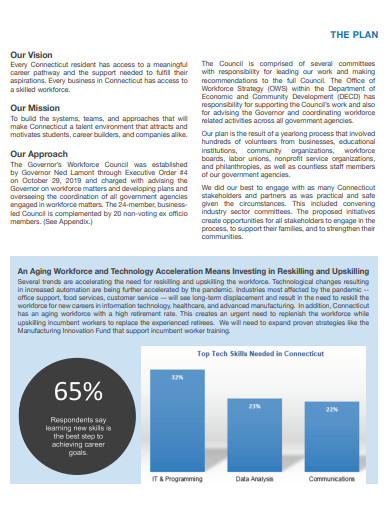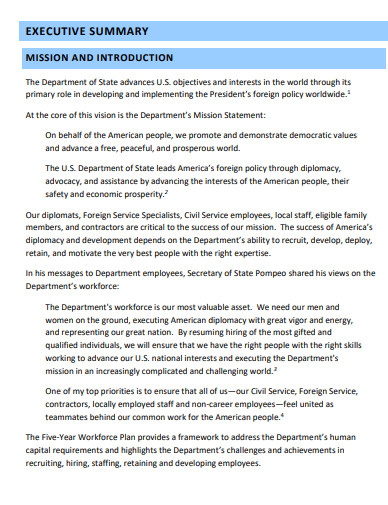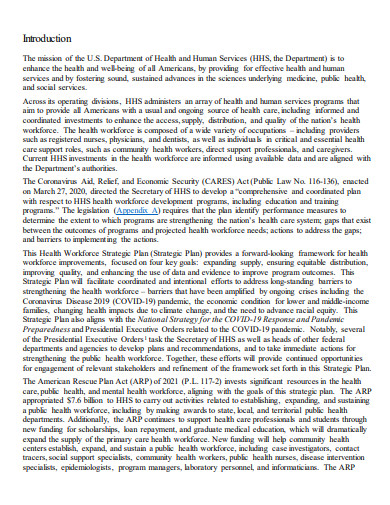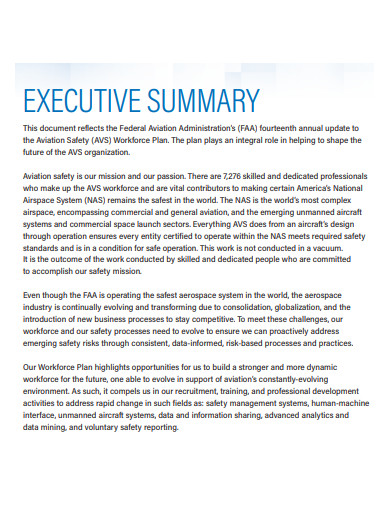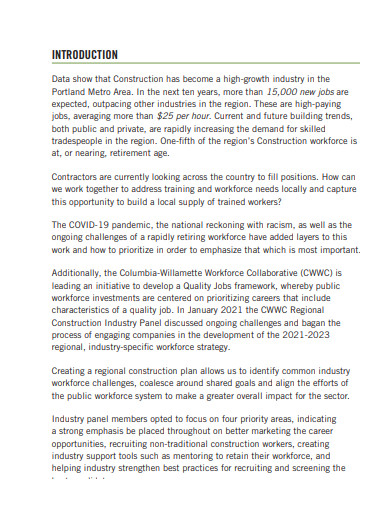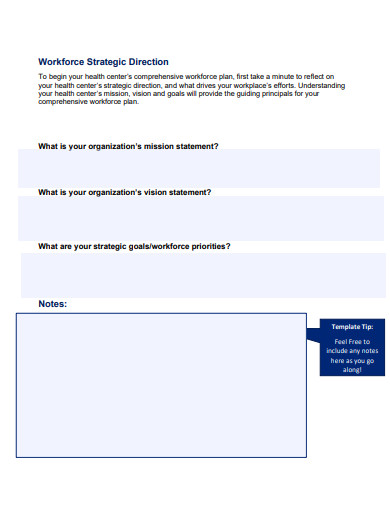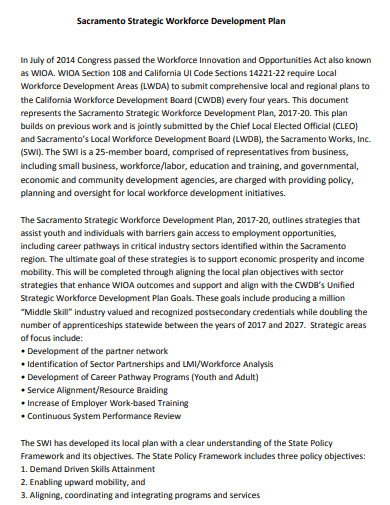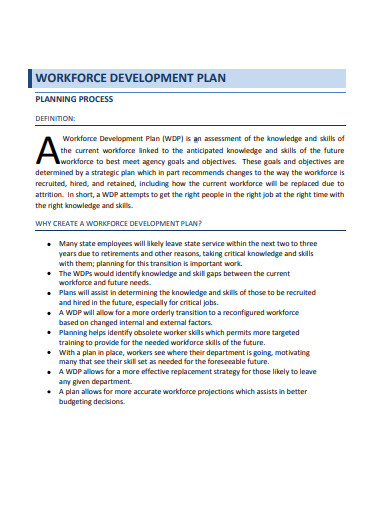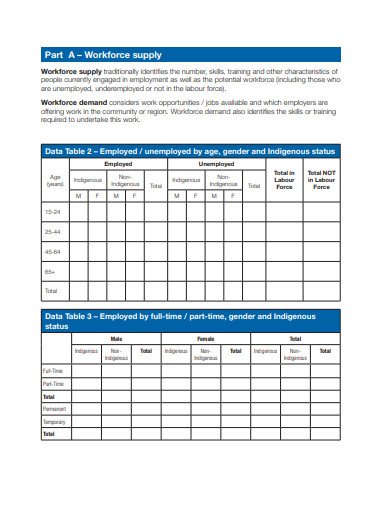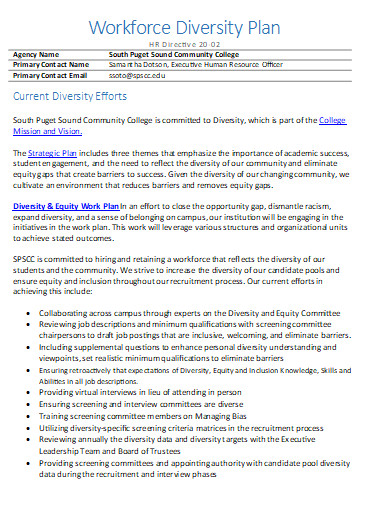Any business strategy should consider resource requirements, and just like financing needs, the business plan must ensure that proper workforce mix is capable to satisfy the plan’s goals and objectives. In workforce planning, an organization evaluates the substance and composition of its workforce and determines what measures are required to meet future demands. External (e.g., skill availability) as well as individual characteristics may influence the activities to be made (e.g., age of the workforce). These factors may influence whether future skill requirements are addressed through recruitment, training, or outsourcing.
10+ Workforce Plan Samples
Workforce planning is concerned with the supply and demand of your company’s skill pool. It’s the process of analyzing and planning your workforce’s growth, determining where you lack resources (skills, for example) and addressing those gaps with programs to recruit, hire (and keep) the right people. The goal of workforce planning is to determine where you have the best individuals in the best jobs. It’s about having the proper number of people with the correct combination of skills, expertise, and experience to assist your company achieve its objectives. These will frequently incorporate both immediate and long-term objectives.
1. Workforce Plan
2. Workforce Strategic Plan
3. Five-Year Workforce Plan
4. Health Workforce Strategic Plan
5. Aviation Safety Workforce Plan
6. Construction Workforce Plan
7. Comprehensive Workforce Plan
8. Strategic Workforce Development Plan
9. Sample Workforce Development Plan
10. Community Workforce Plan
11. Diversity Workforce Plan
Workforce Planning Process
While HR may be the driving force behind the discussion, it is critical that all essential stakeholders have a seat at the table. In order to match your ‘people plan’ with your company plan, they should all be keen to participate.
What is the plan?
What is the future of your company? What direction do you want it to take? What are the top-level management’s present objectives? Workforce planning must begin at the top and be guided by some form of vision or overarching aim. Whether it’s tripling the number of employees or expanding the number of leaders.
Who do we have now?
The next stage is to assess your current talent pool. Who are the people you now employ? What qualifications or training do they possess? How many seniority levels do you have? Take into account whatever you have now, ideally in the form of data, and look back over time to assess how you’ve progressed.
What do we do next?
Consider the distance between your existing talent pool and your ultimate aim. So, what do you require now? Do you require additional personnel? Different kind of abilities? More leaders, perhaps? This will start to inform you on what you should do and what practical steps you should take.
Talent gaps
Let’s delve a little further. When considering what we should do next, we must first consider what is missing. What are your company’s most pressing talent shortages? Which ones will help you get closer to your goal faster? Would employing the ideal high-level leader, for example, aid in the recruitment of even more mid-level talent? Which gaps, when filled, open up incredible potential for growth?
Fixes and initiatives
What will you do to close those gaps? Will you concentrate on campus recruiting, developing a more enticing salary package, or rewarding top performers? What kind of adjustments can help you close those gaps, move forward with your workforce plan, and reach your goal?
Measure results
Were your fixes successful? How near are you to achieving your goal? Analytics and reporting are critical in this situation since they can track your progress towards your target over time. And, with just a few clicks, you should be able to generate a document that you can use and present to senior management.
FAQs
Do you need workforce planning tools?
Workforce planning software can assist alleviate some of the uncertainties associated with workforce planning. That’s because it’s an attempt to close the gap between where your workforce is now and where it can go in the future.
Who is in-charge of workforce planning?
The quick answer is: a large number of people! The workforce planning process is overseen by a number of stakeholders in some organizations (HR, sales leaders, even the CEO). It’s simply a mystery left to the C-suite in some cases. Is it, however, necessary? The responsibilities of workforce planning may disclose who should actually be in charge of the dialogue.
Utilize a variety of succession planning models, from self-identification or nomination to complex software applications that track based on employees’ development programs, skills training completed, courses taken, performance reviews, and potential development proposals. You can begin planning your personnel with certainty once you have all of your employee information in one safe place, complete with statistics and reporting.
Related Posts
FREE 7+ Fashion Business Plan Samples in PDF
FREE 10+ Sprint Planning Samples In MS Word | Google Docs | PDF
FREE 10+ Wedding Planning Samples in MS Word | Apple Pages | Powerpoint | PDF
FREE 9+ Monthly Study Planner Samples in PSD | Illustrator | InDesign | PDF
FREE 9+ Sample Curriculum Planning Templates in PDF | MS Word
FREE 10+ Teacher Development Plan Samples in MS Word | Google Docs | Apple Pages | PDF
FREE 10+ Basketball Practice Plan Samples in PDF
FREE 12+ School Business Plan Samples in PDF | MS Word | Apple Pages | Google Docs
FREE 7+ Client Strategic Plan Samples in PDF | MS Word
FREE 11+ Trucking Business Plan Templates in PDF | MS Word | Google Docs | Pages
FREE 7+ Small Hotel Business Plan Samples PDF | MS Word | Apple Pages | Google Docs
FREE 14+ Bakery Business Plans in MS Word | PDF | Google Docs | Pages
FREE 4+ Yearly Lesson Plan Samples in PDF
FREE 50+ Strategic Planning Samples in Google Docs | Pages | PDF | MS Word
FREE 10+ Construction Project Plan Samples in MS Word | Google Docs | Apple Pages | PDF

